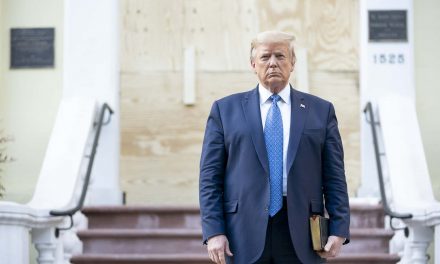
Russia continued its offensive against Ukraine on March 14, striking hard at civilians in Kyiv and Mariupol. The Russian army is gaining ground, but it appears to be sustaining massive losses of personnel and equipment which, in turn, is making leaders focus on grinding Ukraine into submission through sheer brutality.
“The Congress remains unwavering in our commitment to supporting Ukraine as they face [Russian president Vladimir] Putin’s cruel and diabolical aggression, and to passing legislation to cripple and isolate the Russian economy as well as deliver humanitarian, security and economic assistance to Ukraine.” – House Speaker Nancy Pelosi (D-CA) and Senate Majority Leader Chuck Schumer (D-NY)
American focus on the horrors unleashed on Ukraine has clarified our own struggle between democracy and authoritarianism here at home.
In the Freedom House 2022 report on the dire threat to global freedom, released last month, authors Sarah Repucci and Amy Slipowitz noted that “democracies are being harmed from within by illiberal forces, including unscrupulous politicians willing to corrupt and shatter the very institutions that brought them to power.”
Their primary example was that of the United States, which “has fallen below its traditional peers on key democratic indicators, including [presidential] elections, freedom from improper political influence, and equal treatment of minority groups.”
Repucci and Slipowitz explained that in the U.S. and elsewhere, “Undemocratic leaders and their supporters… have worked to reshape or manipulate political systems, in part by playing on voters’ fears of change in their way of life…. They have promoted the idea that, once in power, their responsibility is only to their own demographic or partisan base, disregarding other interests and segments of society and warping the institutions in their care so as to prolong their rule.
Along the way, the democratic principles of pluralism, equality, and accountability—as well as basic stewardship and public service—have been lost, endangering the rights and well-being of all residents.”
To solidify their hold on power, they have spread distrust in elections, as former president Donald Trump famously did in the 2020 election season even before his loss to Democrat Joe Biden, claiming that he would only lose if there were fraud. National, state, and local officials lined up behind Trump to try to overturn the election results, spreading the Big Lie that Biden’s election was illegitimate. The result was the assault on the U.S. Capitol.
That failed, but those who backed it, as Repucci and Slipowitz note, “continue to exert significant influence on the US political system,” while those “who refused to display loyalty to the former leader faced political marginalization, severe intraparty pressure, and outright threats of violence.” They continue to push the lie that the Democrats stole the 2020 election and must be stopped before the 2022 midterms.
To that end, after Biden took office, 19 states passed 34 laws restricting access to voting, and six states launched illegitimate partisan reviews of election results. The trend continues: according to the Brennan Center for Justice, an independent, nonpartisan law and policy organization defending U.S. democracy and justice, as of January 14, 2022, lawmakers in at least 27 states have backed 250 bills with restrictive provisions. The Big Lie has also led to the replacement of nonpartisan election boards with partisans, changing systems in place for decades.
“It is now impossible to ignore the damage to democracy’s foundations and reputation,” Repucci and Slipowitz wrote in February.
But now, Putin’s war on Ukraine has clarified the contest between democracy and authoritarianism even as the House Select Committee to Investigate the January 6th Attack on the U.S. Capitol is uncovering just how close we came to our own authoritarian coup.
This confluence is uncomfortable for a number of Republicans, who see Putin’s declared support for traditional values and the implicit white supremacy in that support as part of a global conservative movement they like. Since the 1980s, U.S. evangelicals have embraced Russian Orthodox leaders concerned with the falling birthrate of white people.
Since at least 2013, when Putin formally began an attack on LGBTQ rights, sparking outrage in liberal democracies, that embrace has become more widespread. With that attack, Putin claimed he was putting Russia at the forefront of conservative opposition to “genderless and fruitless so-called tolerance” which he said “equals good and evil,” goals right-wing Americans applauded.
As Putin has come to represent to them an attack on the secular social norms and civil rights embraced by democracies, Republicans have increasingly openly admired his declared stand for “traditional values.” In 2014, shortly after the Ukrainians rose up and ousted Russian-allied president Viktor Yanukovych, who had been installed with the help of American political operative Paul Manafort, Republicans began to back Putin over then-president Barack Obama.
Evangelical leader Franklin Graham praised Putin’s attack on gay rights for protecting children from “the damaging effects of any gay and lesbian agenda,” while Obama and his attorney general “have turned their backs on God and His standards, and many in the Congress are following the administration’s lead. This is shameful.”
Trump’s pressure to shift U.S. foreign policy away from our traditional democratic allies and toward Russia was almost certainly a reflection of the financial benefits of dealing with oligarchs and illicit money, but others undoubtedly were willing to follow because they believed they were defending “traditional values” and children, especially as stories of pedophilia rings flooded the internet.
But now, Putin’s vicious attack on Ukraine has stripped away the unspoken link between “traditional values” and authoritarianism.
Some right-wing leaders nonetheless cannot quit him: Fox News personality Tucker Carlson’s monologues are so supportive of Putin they are being replayed on Russian state television, Representative Madison Cawthorn (R-NC) has called Zelensky a thug and says democratic Ukraine is “incredibly evil and has been pushing woke ideologies,” and Representatives Marjorie Taylor Greene (R-GA) and Paul Gosar (R-AZ) were part of a conference in which white nationalists cheered on Putin’s attack on Ukraine and chanted his name.
But others recognize that they have been caught on the wrong side of history. According to an Economist/YouGov poll, Americans believe by a margin of 70 to 11 that Putin is committing war crimes. At the same time, the findings of the January 6 committee reveal that the pro-Putin wing of the Republican Party appears to have been willing to overturn our own liberal democracy so long as it could get what it wanted.
A tape revealed that Cawthorn called into a right-wing talk show on January 6th and said he had brought “multiple weapons” with him that day, suggesting he had known what was planned. Also today, Ginni Thomas, the wife of Supreme Court Justice Clarence Thomas, appeared to be trying to get ahead of a story about her participation in the events of January 6 when she told her story to the right-wing Free Beacon.
It reported: “She did not help organize the White House rally that preceded the riot at the Capitol. She did attend the rally, but got cold and left early. And most importantly, in her view, her involvement with the event has no bearing on the work of her husband, Supreme Court justice Clarence Thomas.”
How will all this play out? Trump’s attorney general William Barr is currently trying to sell his new book on a tour trying to whitewash his own participation in the Big Lie, but while he blamed Trump for trying to overthrow our democracy, he nonetheless suggested he would vote for him if he were the Republican nominee in 2024, “because I believe that the greatest threat to the country is the progressive agenda being pushed by the Democratic Party.”
CNN / Twitter
Letters from an Аmerican is a daily email newsletter written by Heather Cox Richardson, about the history behind today’s politics















